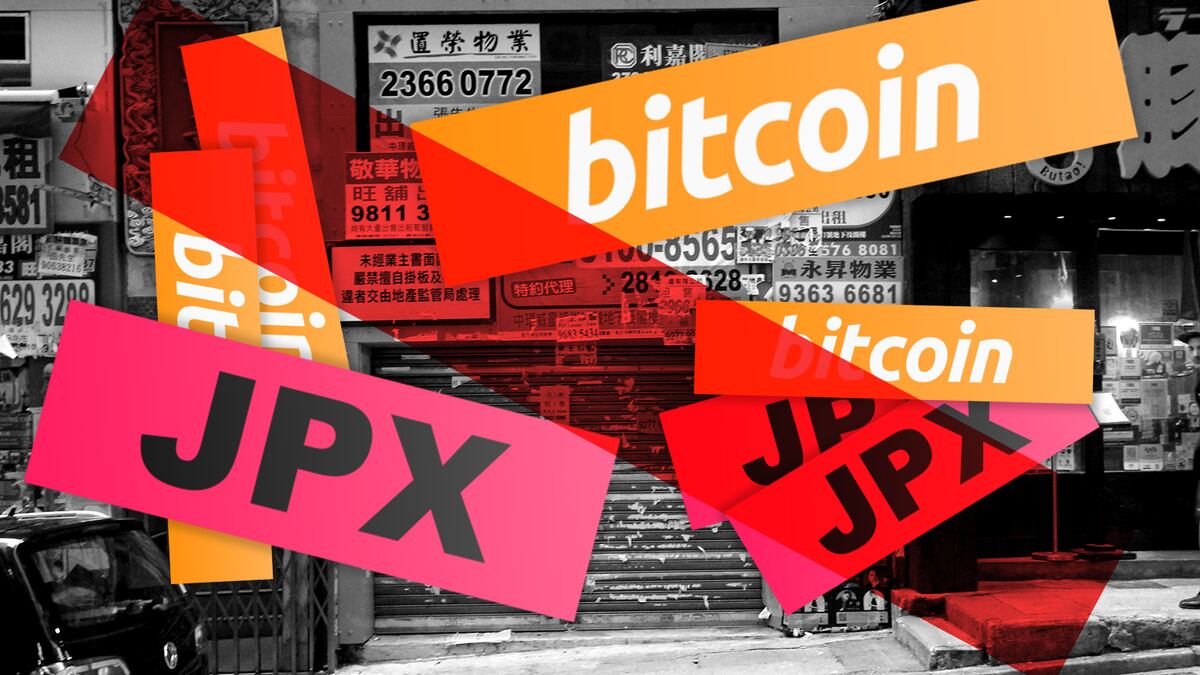- Visiting Hong Kong's closed OTC outlets showed the city's love-hate relationship with crypto.
- The hype of Bitcoin and Ether ETFs contrasts with rising fraud.
- 'We're so early,' say crypto boosters.
Across Hong Kong, the police tape that used to cordon off the storefronts is long gone. Most of the shops are cleared out, the windows plastered with event posters and the contact details of estate agents.
They’re all that’s left of JPEX, a crypto exchange that vaporised in late 2023 and left more than 2,600 depositors out an estimated US$206 million in funds.
In the last couple of weeks, I grabbed my camera and did a walkabout in Hong Kong to see what had become of these places. The last time I poked my head in the window of one, there were still a few half-full cups of bubble tea on the table, the boba all congealing together.
Now these empty spaces are a striking symbol of the haphazard fortunes of an industry Hongkongers appear to love and hate at the same time.
A tale of two crypto cities
The players in Hong Kong’s crypto scene say it’s their mission to “onboard the next billion people to web3,” as a popular slogan puts it.
Industry boosters are labouring to sell the city as a thriving hub of blockchain innovation and, to their credit, they wasted no time in approving Bitcoin and Ether ETFs in April.
Hong Kong was the first Asian market to follow the lead of US regulators, who swung open the door for the popular investment products in January.
At the same time, founders, entrepreneurs, and devs regularly flock to the city for a perpetual stream of confabs, conferences, and symposia. Just this week there’s the Bitcoin Asia event featuring panel discussions on everything from institutional infrastructure to layer 2 venture capital.
“We’re so early,” say crypto enthusiasts when they compare themselves to early adopters of the internet.
Rogue exchange
Yet after a few drinks, those same people will admit they can’t understand how the company at the conference booth next to theirs is producing the yields they promise customers.
And the empty JPEX-linked storefronts are a more blatant reminder of the other aspects of the crypto scene that “professionals” would rather not talk about.
Unable to withdraw
JPEX dominated headlines in Hong Kong for weeks last year. The subject of an ongoing criminal investigation, users found themselves unable to withdraw funds from the exchange.
The Securities and Futures Commission also warned it was misrepresenting itself as a licensing virtual asset platform. On April 18, police officials said they had frozen US$29 million connected to the exchange.
JPEX’s staff abandoned a booth at Token2049 in Singapore in September 2023 and, aside from a few short blogs in the weeks that followed, neither the company or its mysterious managers have been heard from since.
Some of the OTC outlets already have new tenants. One, a Coiner outlet in a shopping mall on Nathan Road, has become a furniture store, although it’s kept the Bitcoin-orange decor.
Around the corner, another OTC outlet is now a pharmacy. There’s still a few pink-and-black striped panels that show its former life as CryptoPard.
As Hong Kong tries to rebrand itself as a crypto hub, it is struggling to address the rampant scams and schemes that are using crypto to operate.
In 2023, crypto-related fraud accounted for more than half the US$764 million in losses in online and offline investments, according to authorities.
This is an inconvenient development for entrepreneurs who are heralding cryptocurrencies as a new asset class worthy of investment from the super-wealthy families and institutions that have long held sway in Hong Kong.
Yet investors have lost millions in JPEX and other rogue exchanges such as Hounax and BitForex.
With law enforcement investigators struggling to even identify the owners of these platforms, recourse for people who, in some cases, have lost their life savings, is virtually impossible.
Even offline, crypto is becoming a rough business.
Hong Kong Police are currently searching for four men who abducted a retail crypto investor in her 50s over a financial dispute. She and her husband were attacked, the latter with a stun gun, on the evening of May 7, police said.
Last month, a teenager was lured to a hotel room in Kowloon under the guise of meeting some fellow crypto traders. The people he was meeting — all between the ages of 16 and 19 — beat him with baseball bats and demanded US$23,000 from his trading profits, according to The South China Morning Post.
Day in and day out, Hongkongers are inundated with “wrong number” messages and phishing emails from so-called pig butcherers and investment scams.
‘Philosophical counselling’
Meanwhile, influencers who ran the JPEX-linked OTC shops are still online promoting their next thing.
Former JPEX promoter Joseph Lam now offers “philosophical counselling” services on everything from legal advice and romantic relationships to marketing and letter writing services. He said on an Instagram post that more then 200 customers have accepted his services since the start of the year.
OTC store Tung Club’s founder and JPEX promoter Henry Choi still promotes crypto courses online — a year’s membership is 1,100USDT.
Neither Lam or Choi responded to separate requests for comment by DL News.
As of last month, 70 people had been arrested in connection with the JPEX investigation.
Nobody has been charged.
Callan Quinn is DL News’ correspondent in Hong Kong. Get in touch at callan@dlnews.com.
